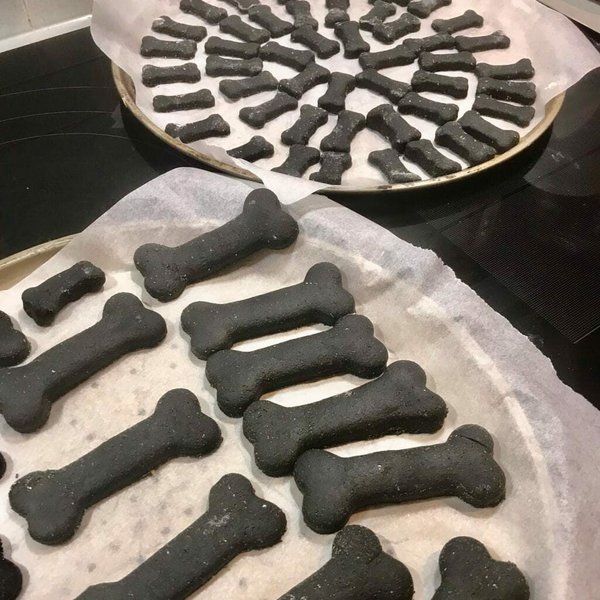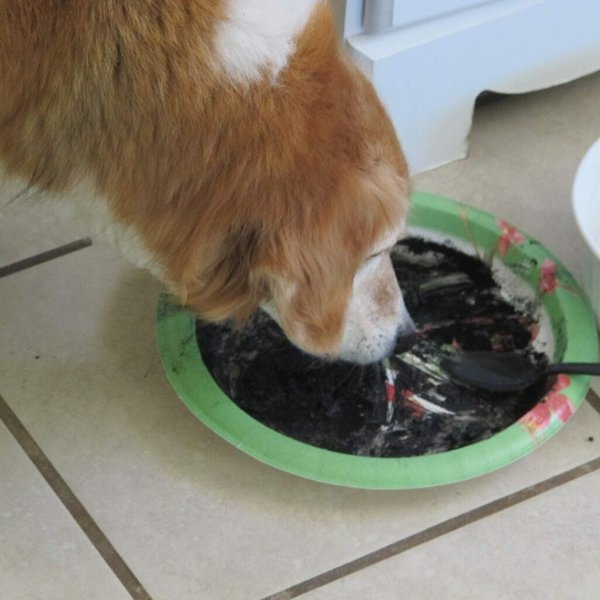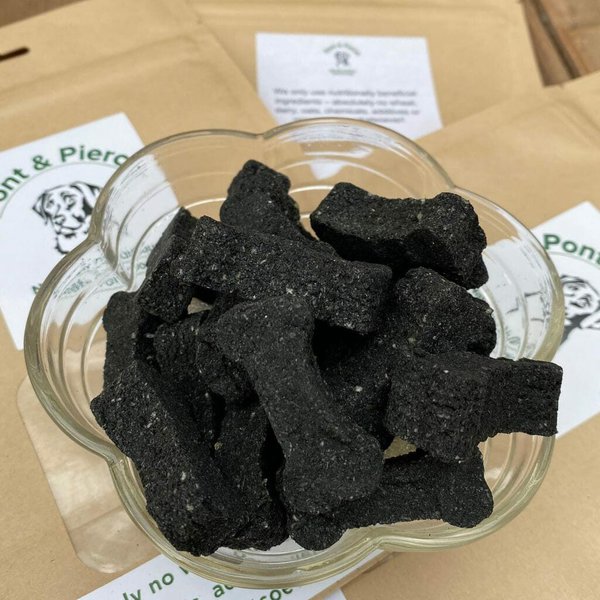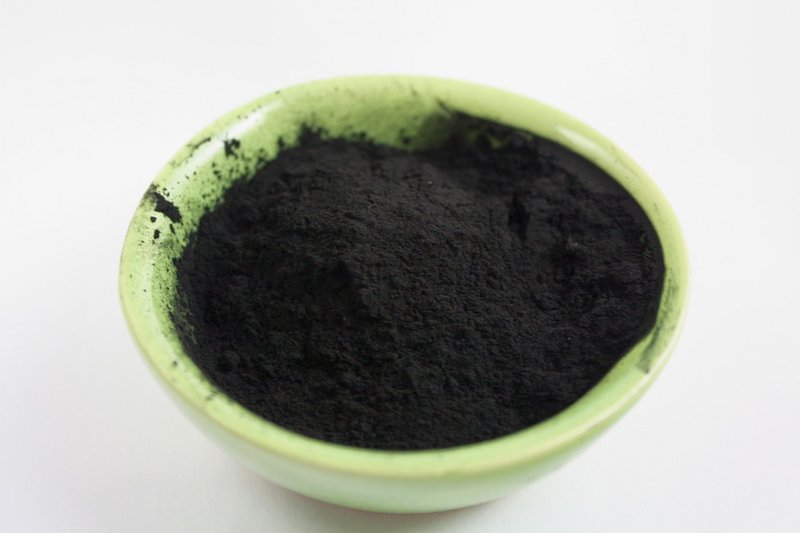The idea of canines taking in activated charcoal sounds bizarre to many pet owners I have come across. This is because most people are not fully aware of the benefits activated charcoal provides. In canines, activated charcoals can be used to remove toxins ingested into their body.
Activated charcoal is often used to treat and purge the toxins the dog has ingested and its effectiveness is highly dependent on the type of toxin in each case. In addition, the grade and dosage of the activated charcoal administered will determine its safety for consumption. Lastly, the effectiveness of the activated charcoal used also depends on how long the dog has been exposed to the toxin after ingestion.
In this article, we will look at the right amount of activated charcoal that you should give to your canine buddy, and ways to administer activated charcoal to dogs.
We will also look at when we should administer activated charcoal to maximize its effectiveness, and the type of toxins activated charcoal can remove.
But before then, let’s see if it is safe for your canine buddy to take activated charcoal.
Can I Give My Dog Activated Charcoal?
Yes, you can give your furry friend activated charcoal only if you suspect that it has ingested something toxic.
Your vet will recommend pet-graded activated charcoal. Pet-graded activated charcoal is safe for dogs that have ingested something toxic.
It is also important to note that not all toxins ingested will require activated charcoal for your canine friend. And you should never attempt to give your furry friend activated charcoal unless it has ingested something toxic.
How Is Activated Charcoal Made?
Activated charcoal is made by heating carbon-rich materials such as wood, peat, sawdust, and coconut shells, under extremely high temperatures using a controlled industrial process.
This process creates new bonding sites or holes in it by freeing up all the initially absorbed molecules which hinder the absorption of substances into the material. The process also removes any potentially harmful substances like toxins and makes them safe for consumption.
Hence, once “activated”, it can now absorb substances into the bonding sites or holes in it. What you will be left with is a black, odorless, and fine powder with a large surface area for absorbing many substances and safe for consumption.
It is worth mentioning that the surface area of the activated charcoal produced is large enough that 1 teaspoon of activated charcoal would cover an entire football field.
What Is Activated Charcoal Used To Treat?
In canines, activated charcoal is used to treat poisonous substances ingested into their body. Activated charcoal is only effective on non-polar substances.
In other words, activated charcoal will not work on all toxins. It is not effective on polar substances, such as alcohol, mouthwash, hand sanitizers, facial toners, fragrances, and most cleaning fluids.
Activated charcoal is effective on the following substances:
- Acetaminophen
- Chocolate
- Strychnine
- Aspirin
- Marijuana
- Narcotics
- Rodenticides
- Ibuprofen
- Pyrethrins
- Bromethalin
If you are unsure of the type of toxin ingested by your canine buddy, you should take it to the veterinarian for treatments.

Does Activated Charcoal Help Dogs With Parvo?
Yes, many furry owners have used activated charcoal to treat their dogs infected with parvovirus successfully.
If you notice that your dear fido isn’t eating, or drinking any water that may be a symptom of the parvovirus. Other symptoms associated with the parvovirus include abdominal pain and lethargy.
Activated charcoal is administered 3 times daily split between an 8-hour interval. It works by removing the toxins produced by the parvovirus and allows the body to maximally fight the virus itself.
Importantly, note that the best diagnoses and treatments for parvovirus are done by the vets. If you have taken your dog to the vet and still have no improvements then, activated charcoal is a recommended option.
Does Activated Charcoal Make Dogs Vomit?
Activated charcoal may make your dear fido vomit especially when taken at a high dosage. One of the adverse effects of using activated charcoal for treatments includes vomiting.
Other side effects of using activated charcoal are diarrhea, black feces, and eye irritations.
Is Charcoal Good For Dogs With Diarrhea?
Yes, activated charcoal is good for canines with diarrhea.
It is capable of absorbing bacteria and other toxins that cause diarrhea. The bacteria and toxins are absorbed on the activated charcoal’s porous surface.
Can I Give My Dog Activated Charcoal After Eating Chocolate?
Yes, you can give your dog activated charcoal if it has eaten chocolate.
Activated charcoal helps to remove the theobromine and caffeine compounds that causes adverse reactions in dogs when they consume chocolates.
Is Charcoal Harmful To Dogs?
Despite having many useful applications, charcoal can be harmful to dogs depending on the size and type of charcoal ingested.
A large charcoal piece is considerably more harmful than smaller ones. When ingested, its large size can cause abrasion to the intestines of your canine.
Also, the common briquettes charcoal is not toxic if ingested in smaller amounts. In contrast, ash charcoal is not safe for your furry friend and should be avoided at all costs. It contains magnesium, potash, calcium carbonate, and varying amounts of toxic elements like mercury.
Does Charcoal Make Dogs Thirsty?
Yes, it is perfectly normal for dogs to become thirsty after taking activated charcoal.
Aside from activated charcoal, the toxin ingested also makes your furry friend thirsty. They become thirsty because their body needs more water to eliminate the toxin out of their body.
How Much Activated Charcoal Do I Give A Dog?
The recommended dose of activated charcoal is 2 to 11 grams of activated charcoal per pound weight of the dog.

What Happens If A Dog Eats Charcoal?
Whenever your furry companion eats charcoal, they can either pass it out through their stool or face difficulty passing it out. Abdominal discomfort is also a problem that occurs whenever your furry companion eats charcoal.
For big dogs, they will usually not experience any discomfort whenever they eat charcoal. This is because of their larger bowels that enable them to easily pass it out through their stools.
In contrast, small dogs will experience abdominal discomfort and will usually throw up. When this happens, you should call your vet and get your dear fido taken care of.
How Long Does Activated Charcoal Take To Work In Dogs?
It can take hours to several days to completely detoxify your canine buddy using activated charcoal.
The length of time also depends on the amount of poisonous substances ingested. You should continue administering activated charcoal to your dear fido every 4 to 8 hours until it shows no signs of intoxication.
The signs accompanying intoxication usually include vomiting, shaking, seizures, restlessness, and increased heart rates.
How Do You Administer Activated Charcoal To A Dog?
One method of administering activated charcoal to their pooches is to give them as a drink by mixing the recommended dose with one cup of water. While some canine lovers mix it with dog food, and others administer it orally via syringes.
Administering activated charcoal orally using a syringe is common. It is employed if your pet dog lacks the appetite to eat or drink water because of the toxin ingested.
However, if your pooch fails to take activated charcoal using any of the following ways, you should take it to a veterinarian. Usually, your veterinarian may use an orogastric or nasogastric tube to administer the activated charcoal.
To be effective, activated charcoal should be administered within an hour of ingestion of the poisonous substance and should be given every 6 hours.

Are Charcoal Biscuits Good For Dogs?
Yes, charcoal biscuits are good for dogs having flatulence or canine gassiness problems.
If you find out that your canine buddy farts a lot or has doggie breath, you should consult your veterinarian for the appropriate dosage of charcoal biscuits.
If you are to give your dear fido charcoal biscuits, you should give them 2 to 3 hours after a meal. This will prevent the charcoal from absorbing vitamins and other nutrients in the meal.





